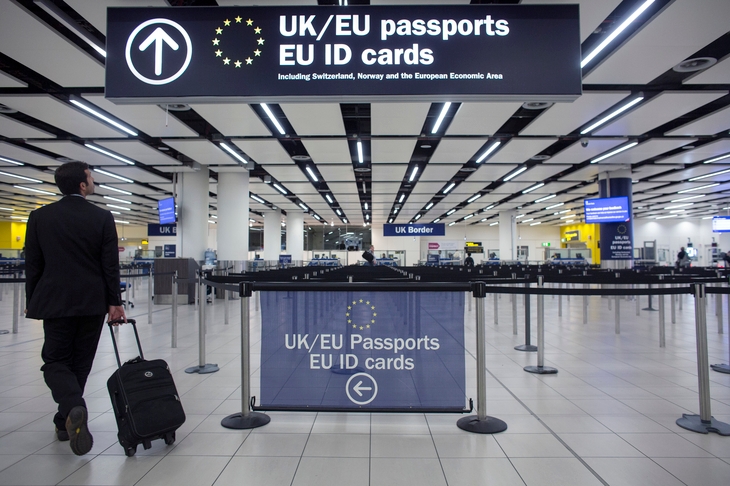In the dark, foggy night that is the Brexit debate, immigration is the dog that has not yet barked. The Chequers agreement contains a promise to formally end free movement, but also to replace it with a “mobility agreement” that could well mean EU migration continues at more or less its current level. Would that provoke a furious public backlash? There are growing signs that some voters are more relaxed about immigration than at the time of the referendum, and more aware of its economic usefulness. Could Theresa May ask the British people to accept a fairly liberal European immigration regime? I hope so, and in this context I note three facts:
1: New data from the British Social Attitudes Survey, one of the gold standard measures of public opinion, suggests voters are becoming more positive about immigration
It shows that since 2015 the number of Britons with negative opinions about immigration has fallen steadily. In the latest BSA data just 17 per cent of respondents said that immigration had been bad for the economy, while 47 per cent said it had been good. (In 2011, the figures were 41 per cent negative and 21 per cent positive.)
The same trend is visible for the social and cultural impact of immigration. Just 23 per cent of people now say immigration has “undermined” Britain’s cultural life, while 44 per cent say it has “enriched” Britain. (2011: 40 per cent undermined vs 26 per cent enriched).
“There is little sign here that the EU referendum campaign served to make Britain less tolerant towards migrants; rather they have apparently come to be valued to a degree that was not in evidence before the referendum campaign,” the British Social Attitudes report said.
2: That poll is consistent with many others showing softening attitudes on immigration
At the Social Market Foundation we summarised recent evidence here; and there are more recent examples too, such as this ORB poll, conducted last week. It asked people to comment on this statement:
“Having greater control over immigration is more important than having access to free trade with the EU.”
The results:
Agree: 38 per (-5)
Disagree: 48 per cent (+4)
That’s a record high for disagreement. In other words, more people than ever before are saying that looking after Britain’s economic interests is more important than implementing restrictions on immigration.
3: Theresa May’s Cabinet shuffle has tilted the balance of the Government towards a more liberal stance on immigration
Boris Johnson had been making bellicose noises on immigration, and may yet make trouble on this issue. But he’s not in Cabinet and his job as Foreign Secretary has been taken by Jeremy Hunt. Hunt’s instinctive stance on immigration is fairly liberal; for all that he’s deftly tacked towards the Brexit camp and even indulged in a bit of mild business-bashing, he is, by nature, sympathetic to the case for open economies and societies.
In fact, three of the four Great Offices of state – Foreign Secretary, Home Secretary and Chancellor – are now held by men who have little taste for the Ukip-lite nativism that has sometimes scarred Tory immigration policy in recent years. Hunt, Sajid Javid and Philip Hammond all had successful private-sector careers before politics; all know that the UK economy and public finances as they are currently constituted rely on fairly easy access to international labour.
Matt Hancock’s promotion to Health Secretary is relevant here too. As an adviser to George Osborne during the Coalition, Hancock saw first-hand how things can go wrong when Tories pander on immigration. Also on the list of sensible immigration voices in Cabinet is Greg Clark, the Business Secretary who was arguing the case for “labour mobility” in the run-up to Chequers.
Outside the Cabinet, some important Tory voices are calling for a different approach on immigration. Ruth Davidson, whose support for May was notable this week, is the most prominent, but don’t overlook Tories such as Nicky Morgan, who has plenty of clout as the chairman of the Treasury Select Committee.
Does this all mean May will soon make a major turn on her immigration policy and rhetoric? I am not betting on it. But I do predict that any meaningful Brexit deal with the EU will entail immigration arrangements that will need to be explained and sold to the British electorate. And recent changes in public opinion and political personnel both mean that job of salesmanship might not be as lonely or difficult as it would once have seemed.








Comments